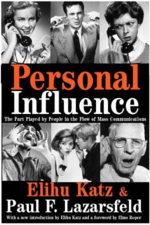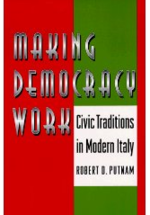Do you Read These?
Earlier this year I co-presented at the Academy of Human Resource Development (AHRD) annual conference in Washington, DC. The AHRD is professional, research-driven organization made up of Human Resources academics and a few 'reflective practitioners'.
At that time I also became a member of the AHRD and almost immediately began Some light readingreceiving a regular series of journals and publications from the academy. Titles like: Human Resource Development Quarterly, HRD Review, and Advances in Developing Human Resources.
These are pretty heavy titles, full of some excellent research pieces written (mostly) by Professors of Human Resources from the USA and many other countries. Articles like 'Meaningfulness, Commitment, and Engagement: The Intersection of a Deeper Level of Intrinsic Motivation' have some great information and can be very valuable for academics and practitioners alike. They are not 500-word blog posts, but if you can wrestle your way though them, you can usually pull out some great insights.
But some other pieces incredibly arcane and narrow in focus and quite honestly seems to exist to support University tenure requirements for publishing. An article like 'The trend of blended learning in Taiwan' fits pretty squarely in this category. By their nature they have limited use and a small potential audience.
Currently, I am in the (long) process of writing an article for one of the aforementioned journals, and since this is the first (and likely only) time I will ever write for an academic journal I have some observations on the process and on the academic journals themselves.
1. It takes an incedibly long time to write one of these articles.
You generally submit an abstract or basic idea for a piece to the editors, wait months to hear if your idea is accepted, then submit a 'expanded' abstract, wait for another few months for feedback, submit a revised expanded abstract, wait, submit a first draft, wait, submit a final draft, wait, and eventually (for me this will be over a year later), see the article published. Oh yeah, actually writing the content takes a really long time too, more details on why that is to follow.
2. Style is (almost) as important as substance
There are often incredibly detailed and precise requirements for the format and structure of each different submission. Length, section titles, headings, and of course strict adherence to the citation formats are so stressed and emphasized that it actually is a bit frustrating and annoying. Does anyone really notice if an article uses APA citation format 5 or format 6? Does anyone even care? This part of the 'writing' process often involves grad student (free) labor. The idea seems to be to recruit a grad student that is good with research to help find references and compile the bibliography in exchange for a credit on the article's eventual byline.
3. What other people have written is more important as what you write
In this kind of writing for academic journals there is a heavy emphasis on citations. It is not unusual to see a 12 page article with over 100 citations. In some of these pieces, nary a paragraph goes by without some external source cited (almost always another academic journal article). I get this to some extent, my (or anyone's) opinions on a topic do carry more weight if it can be shown that other author's have agreed, or drawn similar conclusions; and certainly any statistics or factual statements should show the real source of the data. But many times reading one of these pieces, with so many citations, you wonder why the article was even needed at all. The academic journal citation is probably the earliest form of the blog link or the retweet. Too many of those, and you wonder if the author actually has anything useful to add to the discourse.
4. I am pretty sure hardly anyone will read the article
I keep up with at least 100 other HR blogs, have attended plenty of events, watched dozens of webcasts, and hosted and listened to scores of talk showson HR and recruiting this year. I have never heard anyone, in any context, mention the AHRD, talk about any of the journals they publish, or cite any of the journal articles in a blog post, presentation, or in any other forum. My unscientific observation is that the only people that will ever read my article are the editors of the journal, and a very small percentage of the folks that actually get the journal. And perhaps once in a great while someone doing an academic database keyword search will stumble upon my article for possible use as a (gasp) citation for an article or assignment. This citation (if it ever does happen) will also hardly be seen by anyone outside of this tiny circle of journal editors and academics.
Frankly, I am at the end of the post and I am not really sure what my conclustion is.
Could it be the process, form, and ultimate outcome of the academic publishing process is kind of ridiculous and largely unappealing?
Maybe it is a call for more 'mainsteam' HR practitioners and industry bloggers to take note of the excellent work (if you look hard enough) that can be found in these academic journals?
Could it be that instead of working on my first draft that is due soon, I found it easier and more satisfying to bang out a 900+ word blog post on the whole thing?
I will end with this, does anyone reading this post actually read any Human Resources Academic journals?

 Steve
Steve

